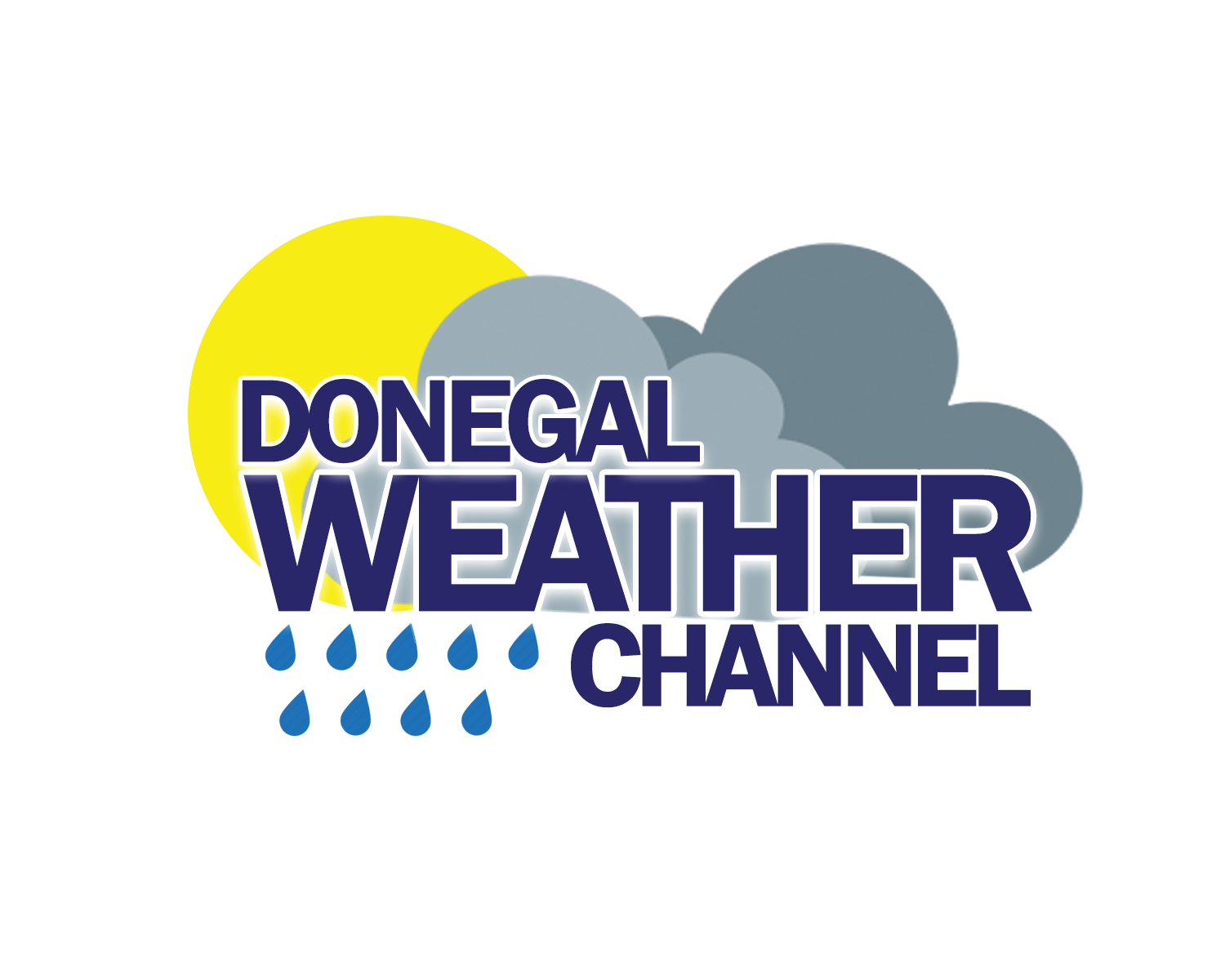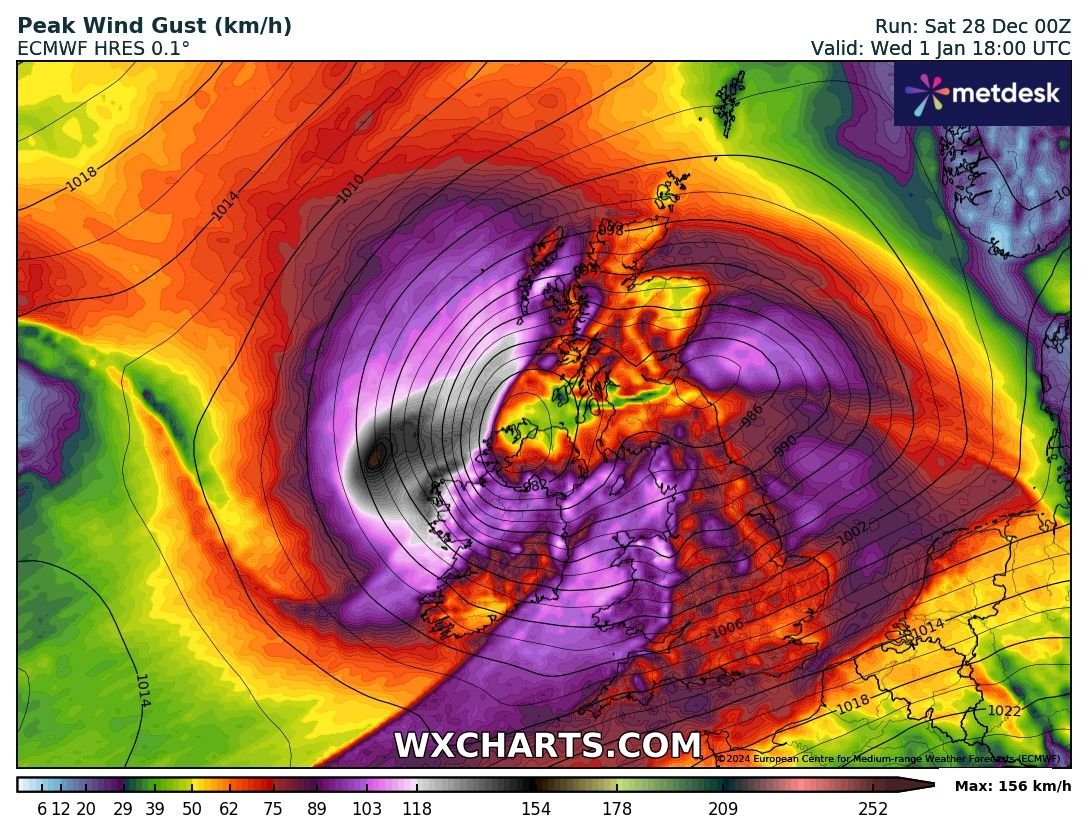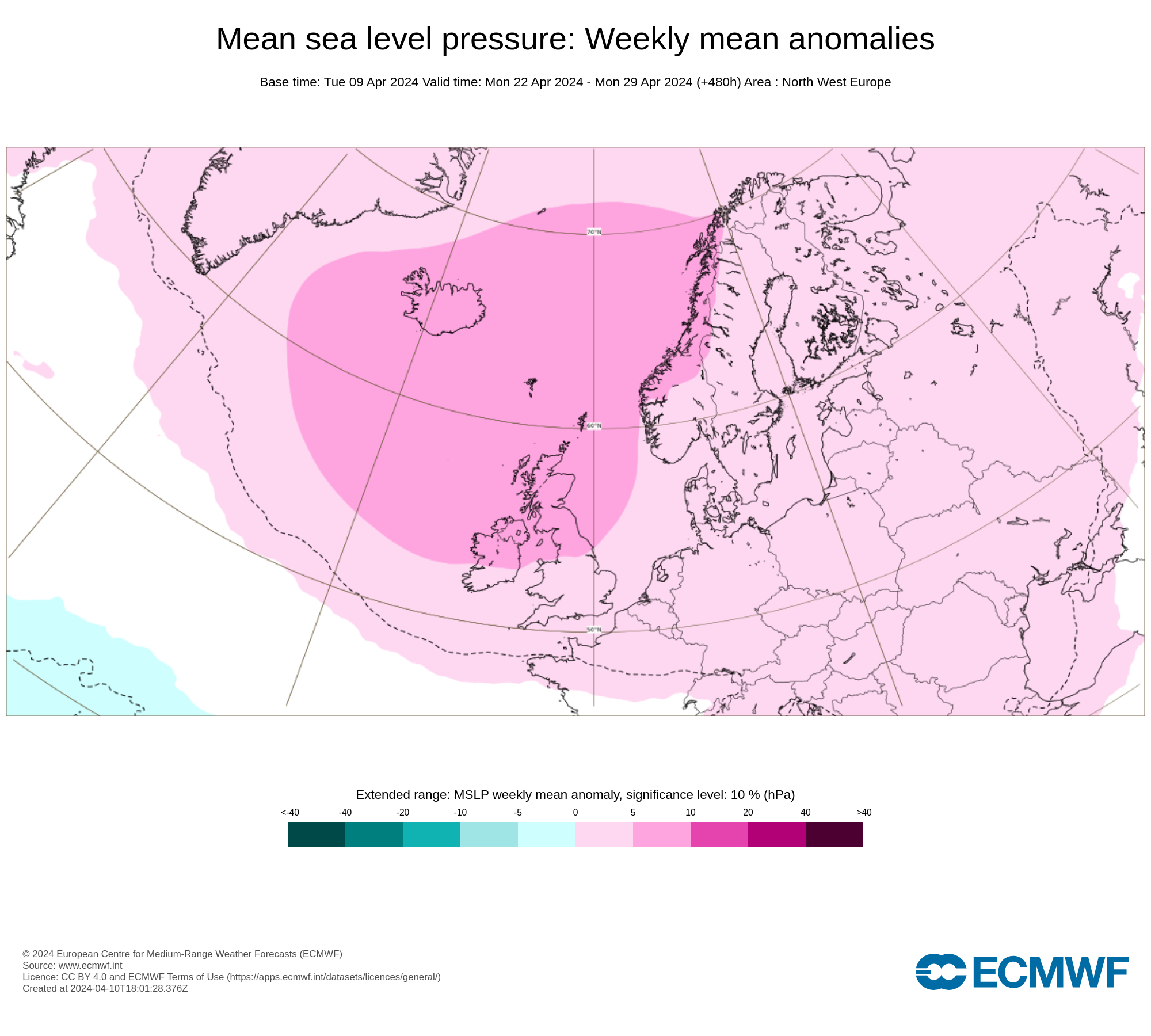WEATHER BOMB STORM - STATUS ORANGE WIND WARNING LIKELY TO BE ISSUED FOR THE NORTHWEST AND WEST OF IRELAND
On Thursday a are of low pressure will rapidly develop of the west coast of Ireland moving up along the west and northwest coast of Ireland on Friday morning and then on into Scotland with Strong Gale force winds and damaging gusts.
What is a weather bomb ?
On Monday morning warned that the storm looked likely to under go explosive cyclogenesis also known as a weather bomb.
This storm is a little different to what we have seen this year so far due to the way it rapidly develops with pressure looking likely to drop between 20 millibars to 24 millibars which would class it as a weather bomb if it drops 24 millibars or more in the space of 24hrs. The official term for a weather bomb is an explosive cyclogenesis. Rapid acceleration of air caused by the jet stream high up in the atmosphere can remove air from the column, reducing its weight so causing pressure to fall at sea level. This in turn sucks in air which converges from surrounding regions resulting in faster and faster rotation of the circulation, in the same way that ice skaters spin faster by drawing their arms in. The resulting winds peak over a period of a few hours and can be strong enough to bring down trees and cause structural damage.
Current model runs this evening are now giving a clearer picture of the storm system which will effect Ireland on Thursday night into Friday with a Orange weather warning likely to be issued either later tonight or on Thursday morning, This of course would be pending any major changes over the next 12hrs to 15hrs.
The Orange warning if issued would likely be issued for Donegal, Leitrim, Sligo and Mayo and possibly for Galway to. The Met office Uk may also upgrade its warning for Northern Ireland to a Amber warning especially for the county’s of Derry, Antrim and possibly Tyrone and Fermanagh also.
Strong Gale Force winds will hit northwestern areas hardest where gusts of between 110km/hr to 130km/hr could occur with gusts of up to 140km/hr along exposed coastal areas and higher ground of the northwest, north and west. The status Yellow wind warning that is currently in place by Met Eireann will most likely be issued for other county’s also where gusts of 80km/hr to 100km/hr would be possible. Strongest gust most likely will be recorded at Malin head as the low passes.
Continues below
Another warning may also be issued for Friday evening and Friday night a secondary low bring the risk of further strong winds and severe gust across the northwest, west and south.
On Friday morning the public are advised to stay away from all coastal areas of the north, northwest, west and southwest of Ireland due to very dangerous conditions and coastal flooding possible, Scattered power outage are also likely across the the North, northwest and west of Ireland on Friday morning.
There is also the risk that a sting jet could form on this system on Friday morning
A sting jet is a meteorological phenomenon that forms as a part of some rapidly developing mid-latitude storms. The 'sting' part of the name refers to the scorpion's tail like shape that the clouds around a sting jet take on. The sting jet contains the most damaging winds, which can reach speeds of more than 100 mph.
Example of a STING JET
Example of a STING JET
A spell of rainfall also looks likely on Thursday night and Friday morning some showers will be thundery with the risk of hail along with the risk of strong gale force winds and potentially severe and damaging gusts.
I will further updates later this evening when a little more detail can be giving on this potential spell of really active weather and possible storm at the end of the week
KENNETH MC DONAGH FROM THE DONEGAL WEATHER CHANNEL
Make sure to give this article a like on Facebook
2019 CALENDAR NOW ON SALE




































